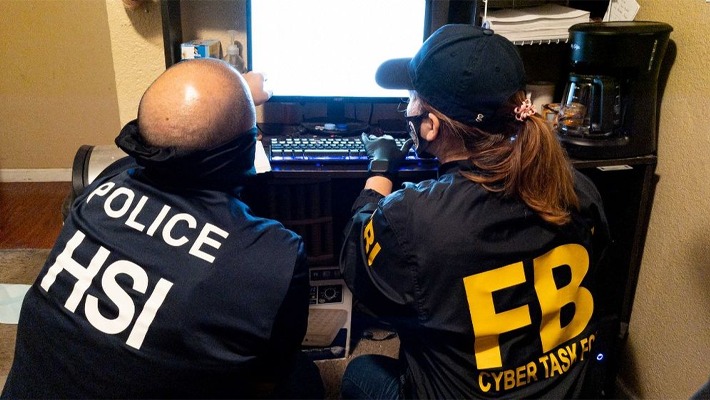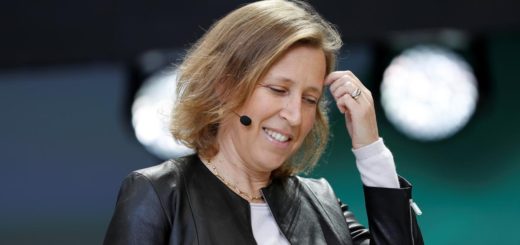FBI accuses Nigerian businessman Henry Okolo of money laundering, confiscates crypto assets
 The United States Federal Bureau of Investigations has frozen over half a million dollars in cryptocurrency assets from Nigerian businessman Henry Okolo, according to court filings seen by Peoples Gazette.
The United States Federal Bureau of Investigations has frozen over half a million dollars in cryptocurrency assets from Nigerian businessman Henry Okolo, according to court filings seen by Peoples Gazette.
American authorities accused Mr Okolo of money laundering and wire fraud, filings showed, saying he convinced a U.S. victim to sell his home and wire him the proceeds.
The June 7, 2024, court motion to confiscate said approximately $196,503 was confiscated from crypto holdings linked to Mr Okoro.
The U.S. government is actively seeking to arrest Mr Okolo, who allegedly scammed a U.S. citizen identified as the only “victim” through a pig-butchering scheme, otherwise known as an investment scam, according to court filings from the U.S. District for the District of Columbia.
The victim said he connected with someone who claimed to be Lisa Warren on a Facebook dating group in April 2022. The acquaintance soon blossomed into a romantic relationship via phone calls, SMS, and emails, with Ms Warren asking the victim to invest in crypto and touting herself as an expert in cryptocurrency trading.
The purported lady was the one who first showed romantic interest in the victim, the document stated.
Ms Warren claimed to live in Dayton, Ohio, and work for Berox Trading in Idaho. Investigations later revealed that the Idaho Secretary of State had no records of Berox in its corporate database.
The victim, who had just lost nearly half a million dollars in a previous fraud scheme, soon gave in to Ms Warren’s request and invested $55,000 between April and November 2022 in the hope of recovering the scammed funds.
“Per Warren’s instructions, the victim created a Coinbase account, purchased Bitcoin, and sent the Bitcoin to a wallet Warren controlled,” U.S. attorney Matthew M. Graves, representing the FBI, said in the in rem forfeiture action on June 7.
In December 2022, Warren told the victim that she was making huge returns from his investment and encouraged him to sell his home to increase his investment for higher profit. She sweetened her requests with a plan to buy a new home where they could live as a couple.
“Warren convinced victim to sell victim’s home and invest the sale proceeds with Warren via Coinbase, in the same manner as the initial
$55,000,” the forfeiture action document verified by FBI Special Agent Ryan Dittmar said.
However, the victim began to suspect foul play after he requested a refund and a physical meeting with Ms Warren, which she repeatedly declined. She returned only $15,000 from over $587,197 invested. Her adamant refusal to meet led him to take a trip to the address on Ms Warren’s driver licence, a document image she shared with him to ascertain her identity early in their relationship.
When he arrived, the family he met at the address said they had no idea who Lisa Warren was.
He quickly lodged a complaint at the Dayton Police Department, where the licence was confirmed to be fake. There was no record of Warren residing in Ohio, and the matter was escalated to the FBI for further investigation.
The FBI traced the victim’s wallet activity using a blockchain public ledger to Warren’s wallet, bc1qpfv8gy727svexhyge20n9prtzgjquu4nf4shq8.
“As of October 2023, Warren continued to tell the victim that the two will purchase a home together and that she is still making profits for him,” the FBI wrote in the forfeiture action.
On November 24, 2023, the FBI traced approximately 5.196 Bitcoin from Warren’s wallet to a Binance address: 1B3LCA8TZEac8o5nJt46ECY3mxDWsxHkR1.
Records from Binance showed that the address was registered to Henry Okolo, user ID 59011023, under the email address Okolohenry50@gmail.com.
“Okolo immediately converted to 196,721 USDT, or ‘Tether’, a cryptocurrency coin that holds value equivalent to the United States dollar,” the FBI action stated.
Binance alerted the FBI on the same date, and the funds were immediately confiscated.
“As of December 23, 2022, the victim had sent Warren a total of $587,197 worth of Bitcoin (approximately 34.5 Bitcoin) from the victim’s wallet to Warren’s wallet,” the FBI said.
Further investigation showed that Mr Okolo transferred the funds to multiple wallets, but four wallets that received a substantial amount of the scam belonged to Chibueze Samuel Okpala, Kaodilichukwu Augustine Echem, Izuchukwu Henry Okolo, and Chinonso Ikechukwu Ezenwuba.
Most of the 31.64 bitcoin sent to the four individuals eventually returned to Mr Okolo’s wallet, which he swapped into Tether for $527,355.32.
But in four transactions between January 2, 2023, at 22:43 and 01:48 January 3 same year, Mr Okolo withdrew and stashed them in a private Tether address TSvvkjLb2Esnayk2xT2tCXzL7tB2xLRkJb (“TSvvkj”) until January 7, 2023.
FBI found that Mr Okolo wired 327,206.86 Tether into Mr Okpala’s Kucoin address, TQRYxu4K96ewnhiX3LXpHqqh2ZKsSGErxZ, in ten transfers.
Kucoin provided the FBI with Mr Okpala’s wallet activity, which showed that the Tether funds were converted to 13.84885977 Bitcoin, which were later sent to another private Bitcoin address, 1KmY8FdSYmLjpGi8No3N9APbVDP9YuMSxh (“1KmY”), in seven transactions between January 9, 2023, and January 14 of the same year.
The FBI analysed the Bitcoin 1KmY wallet activity and found that additional 2.18 Bitcoin was paid into it but could not immediately determine whether it was also the proceeds of a scam.
Although the victim’s funds co-mingled with the 2.18 Bitcoin, the FBI froze the wallet and entire funds as assets “involved in the furtherance of the money laundering scheme” given that “they were sent and received in such a way as to obfuscate the source and ownership of the funds.”
The FBI obtained “Know Customer” details for the Binance addresses of Messrs Echem, Okolo, Okpala, and Ezenwuba, which showed their Nigerian passports. Only Mr Okolo’s address did not carry a Nigerian passport; still, the U.S. security agency triangulated the location of his access logs to show that he is in Nigeria.
When asked to claim his cryptocurrency assets, Mr Okolo defended himself, asserting that “the nature of my business is simply to exchange cryptocurrencies for naira from Person to Person (P2P) and vice versa.”
The FBI found his assertion false in that their investigation revealed that Mr Okolo sold USDT for Canadian dollars.
The FBI is asking the court to issue a warrant of arrest for Mr Okolo, who described himself as a Lagos-based logistics consultant, so that he can “appear and show cause why the forfeiture should not be decreed.”













